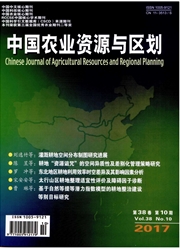

 中文摘要:
中文摘要:
当前我国经济增长模式对自然资源的依赖程度过高,已经引起了严重的经济和社会问题,尤其是自然资源约束的变化威胁着未来我国区域经济的可持续发展。根据我国自然资源的制度基础及经济条件,本文提出了资源规制的概念。资源规制是政府规制在自然资源领域的应用,其目的在于调节和控制区域发展,是政府对资源勘查、开发、利用、经营和保护等行为的约束。资源规制包括了两层涵义:一是对自然资源的管理,二是以自然资源为工具对区域经济和社会发展的调控。我国资源规制的基本框架主要由法律规制、规划规制、标准规制和具体的指标规制四个层次构成,而其他的社会参与、监督、监测、评价和奖惩对于资源规制框架的构建也是必不可少的。从资源类型来看,我国的资源规制主要集中在对水资源、土地资源、能源资源和环境资源的规制上,而对于海洋资源、矿产资源和森林资源的规制力度则较弱。总体来说,我国的资源法律规制、规划规制和标准规制的基本体系已经基本形成,并取得了较好的效果。而具体的指标规制则较为分散和破碎,建立完善的资源规制体系仍任重道远。
 英文摘要:
英文摘要:
The current economic development model in China is highly dependent on natural resource consumption, and this has resulted in severe economic and social problems. Changes in natural resource restrictions are challenging the future sustainable development of the regional economy. Here, we propose a new concept called Natural Resource Regulation on Regional Economic Development (NRR). NRR is an application of government regulation to natural resources, aimed at regulating and controlling regional development. It is a set of constraints on the exploration, exploitation, utilization, operation and protection of natural resources carried out by government. This concept focuses on two aspects: the management of natural resources, and using natural resources as a tool to regulate and control the regional economy and social development. NRR mainly consists of four layers: regulation by law (RL), regulation by plans (RP), regulation by standards (RS) and concrete regulation by control indicators (RI). In addition, social participation and supervision, monitoring and evaluation, rewards and punishments are also indispensable for the framework of NRR. According to the types of resources, practical regulation of land, water, energy and environment are stricter than that of marine, mineral and forest in China. The systems of RL, RP and RS in China are basically established and have achieved considerable results, while concrete RI is still fragmented.
 同期刊论文项目
同期刊论文项目
 同项目期刊论文
同项目期刊论文
 期刊信息
期刊信息
